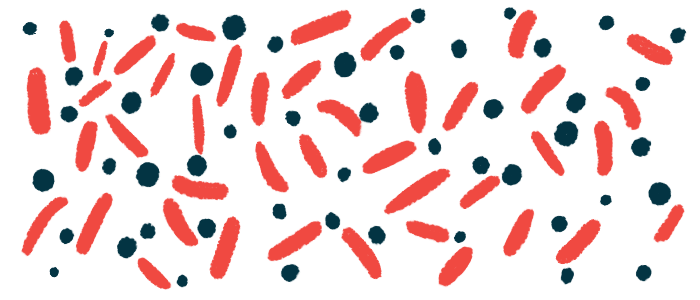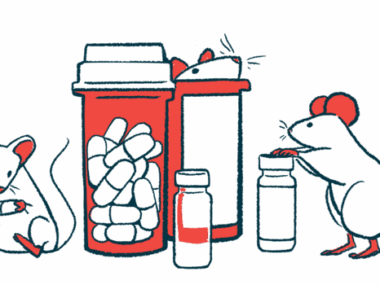Bacteria mix to aid gut microbiome may slow ALS progression
MaaT033 safe, well tolerated after 3 months, data show
Written by |

MaaT033, an oral therapy aiming to restore balance to the collection of bacteria and other microbes in the gut, was safe and well tolerated after three months and showed signs of slowing amyotrophic lateral sclerosis (ALS) progression, according to new data from a pilot Phase 1b trial.
The IASO study (NCT05889572) was designed to test how safe and well tolerated Maat Pharma‘s MaaT033 is when taken as a capsule over 84 days, or nearly three months. It enrolled in 15 adults with ALS at two hospitals in France. The therapy was previously deemed safe and well tolerated after two months of dosing, and the latest data show that its safety profile continued to be favorable at three months.
“These encouraging findings from the IASO Phase 1b trial confirm the favorable safety and tolerability profile of MaaT033 in ALS patients,” Gianfranco Pittari, MD, PhD, chief medical officer at Maat Pharma, said in a company press release.
In addition to safety and tolerability, researchers are tracking changes in disease progression and in certain disease biomarkers.
An external scientific advisory committee that reviewed full data from the trial noted that while the findings are promising, they should be viewed with caution as they come from a small number of patients with a short follow-up and no control group, the company noted.
ALS progression and the gut
Maat said the committee offered guidance about which group of patients would be best to include in an upcoming Phase 2 clinical trial, though the press release didn’t elaborate.
In ALS, the gut microbiome — the community of bacteria and other microbes living in the gut — is commonly out of balance and contributes to ongoing inflammation in the brain and spinal cord. This imbalance is thought to accelerate disease progression and reduce survival in patients.
With this in mind, Maat Pharma developed MaaT033 to restore the microbiome balance in ALS patients. The therapy contains beneficial bacteria collected from healthy donors. The bacteria are freeze dried and placed into capsules that patients can swallow. Once in the gut, they are meant to settle in and grow to help restore balance in the gut microbiome.
The therapy was originally developed for certain people with leukemia, a blood cancer, but the company decided to extend its clinical testing into ALS, building on evidence around the gut-brain connection.
“Recognizing the significant unmet medical need in ALS and with the will to support those affected, we applied our discovery platform to this new disease area, demonstrating its potential beyond our primary focus in oncology,” said Hervé Affagard, Maat’s CEO and co-founder.
IASO involved patients who had been experiencing symptoms of ALS for at least six months but no more than two years. It was a single-arm, open-label trial, meaning that all patients received MaaT033 and they and their doctors knew they were getting it.
Over three months of treatment, patients tolerated the oral therapy well and did not experience side effects, meeting the trial’s main goal. Bacteria from MaaT033 were detected in most patients’ guts within the first month, suggesting they rapidly settled in the gut.
The researchers tracked disease progression using the Revised ALS Functional Rating Scale (ALSFRS-R), which measures a person’s ability to do everyday activities like walking or eating. A lower score means more severe disease, and the faster patients lose points on that scale, the faster the disease is progressing.
Before starting the oral therapy, patients were losing a median of 0.7 points per month on the ALSFRS-R. Over the 84 days of MaaT033 treatment, the median rate of progression slowed to 0.3 points per month.
Levels of neurofilament proteins, which indicate damage to nerve cells, did not change during this time.
The Phase 1b findings “highlight the therapeutic potential of microbiome modulation beyond oncology and open new avenues for development in neurodegenerative diseases,” Pittari said.
The company is “actively seeking partners with a focus on ALS and the financial capacity to support new options to fight this disease,” said Affagard.






